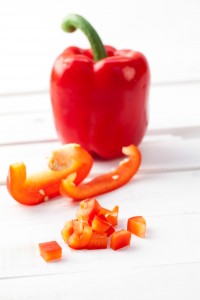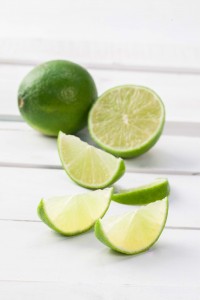Foods High in Vitamins...

Vitamins benefit our bodies in many ways: help our vision, maintain healthy teeth and skin, fight colds, and so much more. But sometimes it's hard to make sure we’re eating a vitamin-rich diet. Here are some foods you can eat to give you a boost of vitamins A, B6, B9, B12, C, D, E, and K.

Want healthy teeth, skin, hair, nails, and bones? Vitamin A can help with that. This vitamin also fights bacterial and viral infections and helps keep our eyes strong. Sweet potatoes, apricots, cantaloupe, winter squash, and carrots are great sources of vitamin A.
Vitamin K helps our bodies form blood clots; without enough of this vitamin, even the smallest cut could be dangerous. Studies show that Vitamin K also helps older adults maintain strong bones. Lots of green foods are high in vitamin K, including Brussels sprouts, parsley, broccoli, romaine lettuce, asparagus, kale, and spinach.

Vitamin E is an antioxidant that protects cells from damage and repairs muscle cells. Vitamin E also helps our bodies to use vitamin K properly. Try these foods high in vitamin E: spinach, bell peppers, asparagus, Swiss chard, turnip greens, sunflower seeds, and almonds.
Vitamin D is critical to calcium absorption and the health of bones and the immune system. Did you know that vitamin D doesn’t just come from foods? Our bodies make it when we get direct sunlight. Getting enough sunlight can be difficult particularly in the winter, so fill up on these delicious foods that are rich in vitamin D: eggs, milk, shiitake mushrooms, and seafood such as salmon, herring, oysters, trout, and catfish.

Vitamin C is a powerful antioxidant that keeps cells functioning properly. It also helps keep teeth and gums healthy, speeds up wound healing, and helps your body resist infections. Here are some great foods to eat—especially with cold and flu season coming up—that are high in vitamin C: papaya, broccoli, dark leafy greens, bell peppers, strawberries, and citrus.
Vitamins B6, B9, and B12 assist with proper nerve functioning, the formation of red blood cells, and the synthesis of DNA. These vitamins also help with brain functioning, prevent anemia, and are important for metabolism. Check out these prime sources of vitamins B6 and B12: milk, eggs, mussels, oysters, red meat, poultry, and fish. Foods high in B9 include poultry, leafy green veggies, and some fruit juices, such as orange and grapefruit.
Now that you know what foods contain these essential vitamins, the only question is how to include the foods in your diet. Actually, it's not as hard as you may think. For example, at least one food in each of the vitamin categories above would be a great addition to your next fruit smoothie or green smoothie. Or make some almond butter or almond milk in your blender. You could even blend up a delicious soup.
What vitamins are your favorite foods high in?
Source: http://health.yahoo.net/articles/nutrition/photos/foods-pack-nutritious-punch-vitamins-k#0


Hi Tasha,
Sure, you can blend vitamins, but the taste of the smoothie may be altered. You may also want to check the vitamin/mineral content of the produce you put in the smoothie because fresh produce along with supplements could result in toxic amounts of some nutrients.
Can you put vitamins in the blender? I have to take so many vitamins— it would be great to just blend them in a smoothie.
Leave a comment